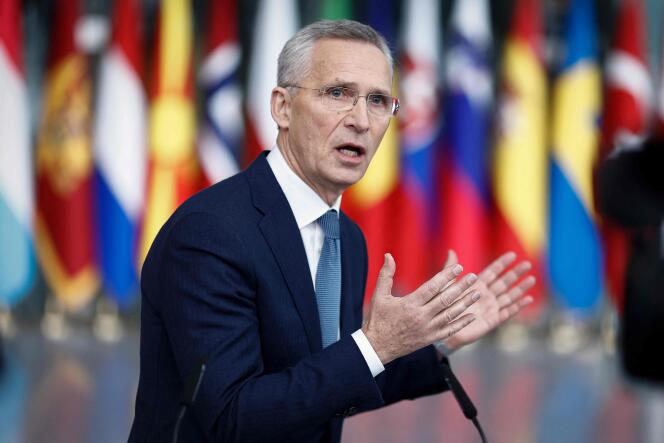NATO chief Jens Stoltenberg wants a resolution in how the alliance funds and arms Ukraine, but his plan drew mixed reactions from NATO foreign ministers on Wednesday, POLITICO reported.
At a summit in Brussels on 3 April 2024, the alliance’s 32 member states agreed to play a greater role in coordinating military aid to Ukraine to help it fight Russia in the biggest European conflict since World War II and show unity on Ukraine, but some expressed doubts and concerns about such assistance.
“We must ensure reliable and predictable security assistance to Ukraine for the long haul,” Stoltenberg said ahead of the meeting, “so that we rely less on voluntary contributions and more on NATO commitments. Less on short-term offers and more on multi-year pledges.”
The secretary-general’s idea is to remove politics and uncertainty from military aid to Ukraine by creating a five-year fund of €100 billion and taking on most of the burden of supplying arms to Kyiv.
The Kremlin’s reaction to NATO’s plans for a new $100 billion aid fund for Ukraine was not long in coming. Kremlin spokesman Dmitry Peskov, answering journalists’ questions on the topic, emphasised NATO’s involvement in the conflict in Ukraine.
The Ukraine mission proposal comes at a time when the Biden administration is trying to win congressional approval for a $60 billion military aid package for Ukraine, which Republican candidate Donald Trump publicly opposed ahead of November’s presidential election. Many see the impasse as a harbinger of how US policy toward Kyiv will change under a Trump presidency.
“Every day of delay in the decision of the United States in providing more support to Ukraine has consequences on the battlefield,” he said, adding that Russia is now able to “outgun” Ukraine.
The secretary-general’s plan would upend NATO’s current role, as most of the alliance’s 32 members supply military aid and money to Ukraine through the US-led Ramstein format, which supplies weapons to Ukraine.
If NATO were to take over this body, it would mean the alliance would move beyond its previous role and focus only on non-lethal supplies to Ukraine.
“A stronger NATO role in coordinating and providing support is a way to end this war in a way where Ukraine prevails,” Stoltenberg said.
The purpose of such a plan is to make aid to Ukraine less dependent on national politics, allowing it to plan for the long term. One proposal is for NATO members to contribute 100 billion euros to the fund, depending on the size of their economies. This would reduce the overall share paid by the US and also undermine Trump’s argument that European allies have no influence.
Stoltenberg downplayed concerns that a stronger NATO role would weaken the US presence, emphasising the dual role played by Christopher Cavoli, commander of US European Command and Supreme Allied Commander Europe.
“General Cavoli is the U.S. commander in Europe, but General Cavoli is also the NATO commander in Europe,” Stoltenberg said. “And of course, I think General Cavoli coordinates with General Cavoli – it’s the same man.”
Such a radical change in NATO policy requires the approval of all members, NATO spokesman Farah Dakhlalla said ministers “agreed to move forward with planning for a greater NATO role in coordinating assistance to Ukraine,” the discussions are likely to continue until July’s summit in Washington.
The White House has expressed no interest in the idea: “The contact group has been very, very effective,” John Kirby, White House national security communications adviser, told reporters on Wednesday. “We’re going to continue to lead and convene it. And we know that our leadership of that contact group is valued, it’s important.”
Initial reaction from ministers in Brussels on Wednesday to Thursday’s celebration of the alliance’s 75th anniversary was mixed.
Poland’s foreign minister, Turkey and German Foreign Minister Annalena Berbock said they supported the idea, but opposition was also expressed.
Howewer, diplomats warned that the funding discussion remains at a very early stage, pointing to Stoltenberg’s refusal to publicly acknowledge the amount in his proposal. Still, after the presentation, some ministers rolled their eyes at the €100 billion sum, wondering where it came from, said a diplomat who spoke on condition of anonymity.
Some Western European countries worry that giving NATO so much money and power will undermine the European Union’s efforts to play a bigger role in defence.
Hadja Lahbib, Belgium’s foreign minister, for her part, warned, “It is dangerous to make promises that we cannot keep.”
